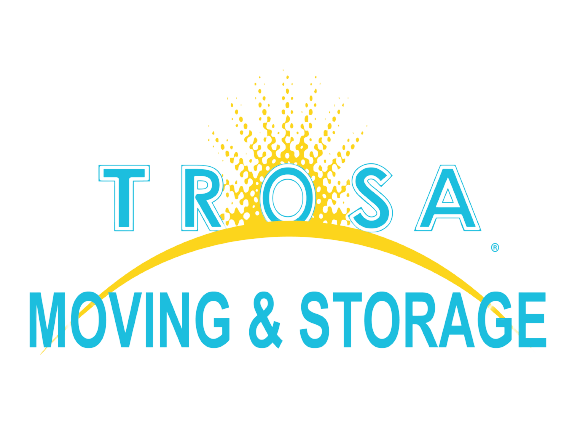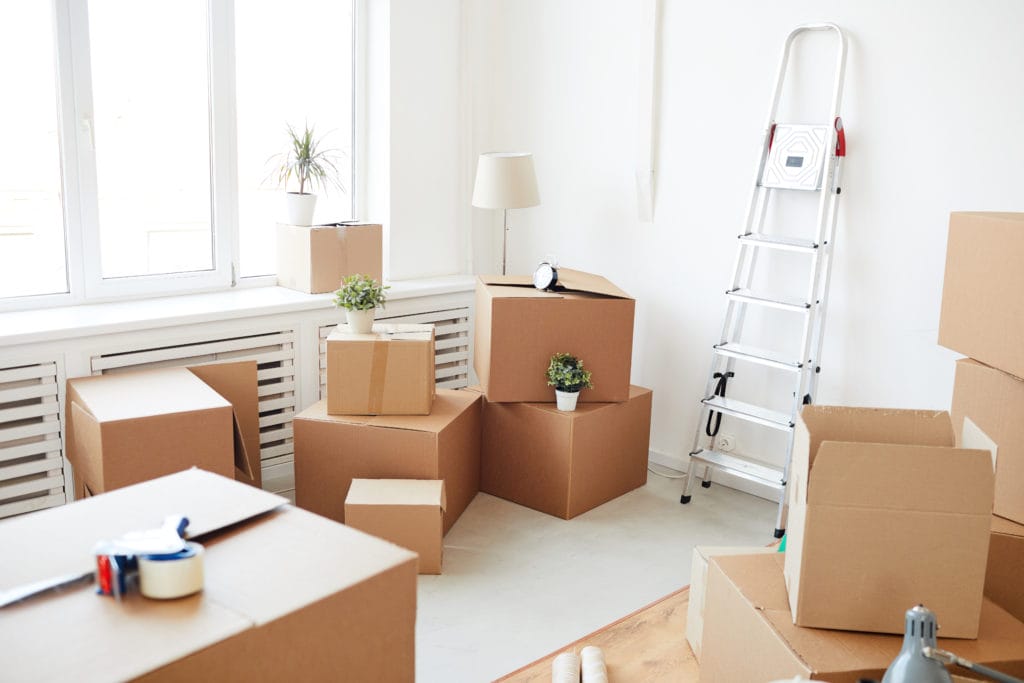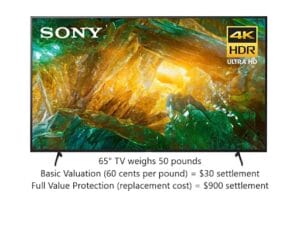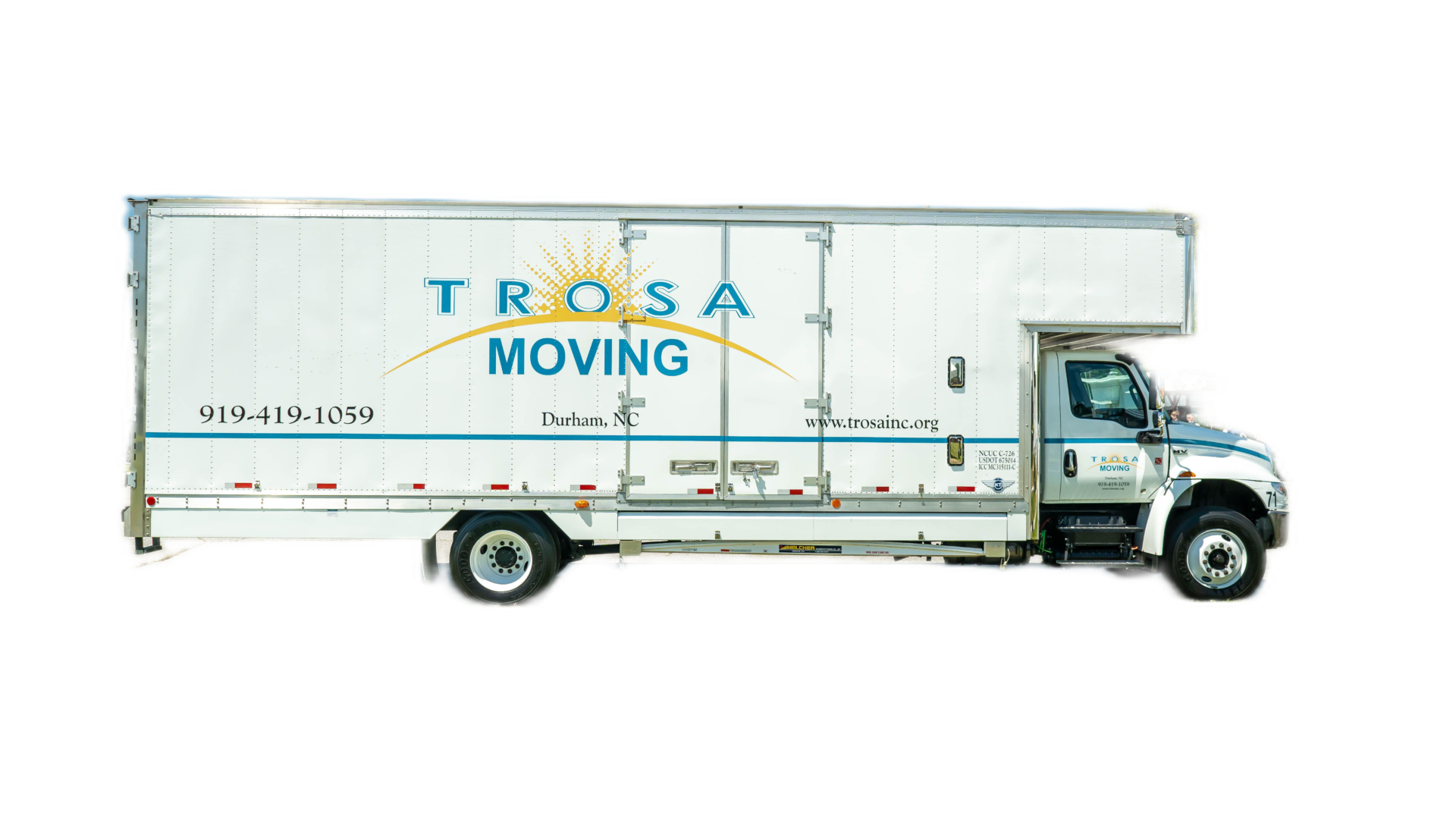If you have a move confirmed, you have already received the official NCUC Consumers Guide, but we thought this brief post might help explain things more clearly, particularly when it comes to selecting your level of valuation. In the case of a damaged item, it is always up to the mover whether they will offer to repair your item, replace your item, or offer a settlement.
All licensed movers in NC are required to offer Basic Valuation at no cost to the customer – this covers damaged items at 60 cents per pound, based on the weight of the item. This level of coverage is free, but it does not offer much protection when you consider items like a flatscreen TV. The TV below retails for $1,100, but is currently on sale for $900.
Looking at this example, it’s pretty clear that Full Value Protection is a worthwhile investment if you have high-value items that you want to protect. Some people get confused by the language in the NCUC document, thinking Full Value Protection maxes out at $4.00 per pound, but that is only in the event of a total loss of all of your items. In reality, most damage claims are for one or two items, not the loss of an entire truck. Full Value Protection does cover the full replacement value (not purchase price, but current market value) of any item that is damaged in the move. If you want to increase the total value of your full move, we are able to offer an increased valuation for the move – this can offer additional protection if you have a lot of higher value items.
But keep in mind that there is a limit, even though it is called “Full Value” – this valuation maxes out at $100 per pound.
If you have valuable items like this, be sure to mention them prior to your move. Smaller items like jewelry are best moved by yourself, so that they remain under your care and supervision, but you may want to consider purchasing additional valuation for items of extraordinary value such as a valuable painting, statue, or other collectible item. If you wish to purchase valuation for items of extraordinary value, this must be done in advance, and may require documentation such as a recent (within past 12 months) appraisal or receipt of purchase. In general, we recommend moving any items of extraordinary value yourself in a secure location.
If you have any questions about valuation, please don’t hesitate to ask! It’s always better to be informed of any risks before your move, rather than finding out after the damage has been done! For information about TROSA’s damage claims process, see this post. For any questions about the process, or valuation in general, feel free to email movingclaims@trosainc.org.




